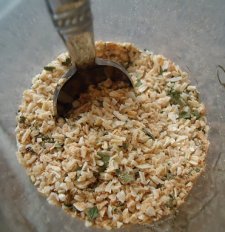
Since 2000
Home
About Us
2017 Newsletter
Chicken
Turkey
Beef
Lamb
Pork
Jams
Soaps
General Store
Recipes & Tips
Turkey Thawing
Chicken FAQ's
Around the Farm
Where to buy our Jams
Where to buy our Soaps
Order Meats
Order Turkeys
Lamb Deposit
Order Soaps
Order Jams
Contact Us
|
Recipes

   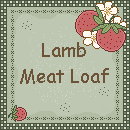
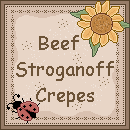 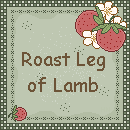  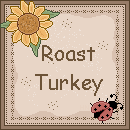
   
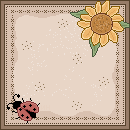  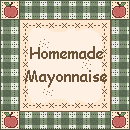 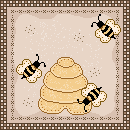

Click on the recipe title and it should
give you a .pdf file that you may print.
Cooking Tips for
Pasture Raised Meats
~~~~~~~
DO !!
-
Thaw your meat in the refrigerator for a day or
two, or place your package of meat in a bowl or sink of water for a few
hours.
-
Bring your grass-fed meat to room
temperature before cooking.....do not cook it cold straight from the
refrigerator.
-
Turn down the heat. Get a good meat
thermometer. (As we Bechards say,
"cook it LOW and SLOW")
-
Pre-heat your oven, pan, or grill before
cooking your grass-fed meats.
-
Ease up on the seasonings and
sauces. Grass-fed meats should be seasoned delicately so as not to
mask or compromise their true flavor.
-
Less tender cuts of meat can be marinated to
tenderize and add flavor. A tenderizing marinade must contain an acid
ingredient such as lemon juice, vinegar, yogurt, or wine.
-
Marinades without an acid can be used
to flavor tender cuts.
-
Always marinate in the refrigerator,
turning several times to coat evenly. Less tender cuts need 6-24 hours
to tenderize. Marinating longer than 24 hours will result in a mushy
surface texture.
-
Choose a recipe that doesn't mask the delicate flavor
of grass-fed meat but enhances the moisture content.
-
A "rub" (as in some of our recipes) is a
blend of seasonings, such as fresh or dried herbs or spices, applied to the
surface of uncooked cuts.
-
"Rubs" add a burst of flavor to the
meat but do not tenderize.
-
Learn which cuts need dry-heat cooking
and which need moist-heat cooking. Choose the appropriate
cooking method for the cut you've selected.
-
Tender cuts can be cooked using
dry-heat methods such as broiling, grilling, pan-broiling,
pan-frying, roasting, and stir-frying.
-
Less tender cuts need to be cooked slowly
using moist-heat methods such as braising and cooking in
liquid.
~~~~~~~
DON'T
!!
-
Don't thaw or defrost your meats in the microwave.
Grass-fed meats are more lean than grocery-store meats and microwave use
can cause the the meat to be tough and reduce the overall tenderness of
your meat.
-
Don't cook frozen or partially-frozen grass-fed meats -
it causes the meat to be tough and dry.
-
Don't over cook your meat.
-
Don't cook your meat in the microwave.
It can change the texture and flavor of your meat.
-
Don't follow the USDA temperature guidelines for times
and temperatures when cooking your grass-fed meats Their
temperatures are too high for the leanness of grass-fed meats.
-
Never use a fork to turn your meat....precious juices
will be lost. Always use tongs.
-
Did we mention to NEVER thaw or defrost your meats in
the microwave???
~~~~~~~
By following these cooking tips, you will
enjoy the most delicious and nutritious meat you've ever eaten!
Enjoy!

Home
About Us Meats
Chicken Turkey
Beef Lamb
Pork
Jams
Soaps
Recipes & Tips
Around the Farm
Contact Us
Links
Order
Meats Order Jams
Order Soaps
© 2000-2017, Bechard
Family Farm |


















